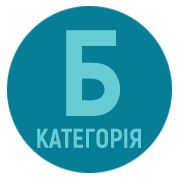EDITORIAL STUDIES OF TRANSLATION AS AN AREA OF TRANSLATION RESEARCH
DOI:
https://doi.org/10.32782/2307-1222.2024-57-17Keywords:
editor, editorial studies of translation, multiple translatorship, translation, translation practice, translation studiesAbstract
The present article explores editorial studies of translation as an interdisciplinary field of translation studies that deals with the multifaceted process of preparing translated texts for publication, examining the roles of editors, translators, and other contributors in shaping a high-quality final product, as well as considering the influence of editorial decisions on the perception of translated texts, and the broader interaction of discourses and literatures in the realm of intercultural communication. Recognizing the significance of developing an interpretive mechanism for analyzing editorial practices in translation, which also includes compliance with professional standards, ethical considerations, and the integrity of the original work, the paper proposes a three-level model for the conceptual analysis of editorial practices in translation. At the micro-level, we propose conducting a functional-structural analysis that encompasses lexical, semantic, stylistic, and pragmatic aspects of the translated text. This level of analysis reveals how the text positions itself through specific examples of target language usage, showcasing linguistic trends or editorial practices. At the meso-level, attention is focused on the interpersonal dimension, specifically on the editorial assessment of the translator's attitude toward authorial intentions and the manner in which they are actualized and specified. The macro-level involves the analysis of the actualized discourse, encompassing examples of shifts, manipulations, and tendentious rewriting in the translation. Editorial studies of translation are particularly important for investigating the representation of Ukrainian literature internationally, notably in the English-speaking world. The history of Ukrainian-English translation reveals that editors, acting as curators of translation publications, conceptually structured the material and engaged actively with translators. They played a pivotal role in shaping the presentation of Ukrainian literature and integrating it into global literary narratives.
References
Одрехівська І. Аналітична модель дослідження рецепції української літератури в інокультурному просторі. Іноземна філологія. 2020. Вип. 133. С. 173–183.
Партико З. Загальне редагування: нормативні основи. Львів : Афіша, 2017. 416 с.
Пермінова А. Рецептивна модель поетичного перекладу (на матеріалі перекладів американської поезії ХХ століття) : дис. … докт. філол. наук : 10.02.16. Київ, 2015.
Brodie G. Schiller’s Don Carlos in a Version by Mike Poulton, Directed by Michael Grandage: The Multiple Names and Voices of Translation. Authorial and Editorial Voices in Translation 1 – Collaborative Relationships between Authors, Translators, and Performers. Eds. Hanne Jansen and Anna Wegener. Montréal: Éditions québécoises de l’oeuvre, collection Vita Traductiva, 2013.
Bisiada M. Translation and editing: a study of editorial treatment of nominalisations in draft translations. Perspectives. 2018. № 26:1. Р. 24–38.
Bisiada M. Universals of editing and translation. Empirical modelling of translation and interpreting / ed. by Hansen-Schirra S., Czulo O. and Hofmann S. Berlin: Language Science Press, 2017. 241–275.
Casanova P. The World Republic of Letters. tr. by M. DeBevoise. Harvard University Press, 2004. 440 p.
Jansen H., Wegener A. (eds). Authorial and Editorial Voices in Translation. Vol. 1. Collaborative relationships between authors, translators, performers. Vita Traductiva. Editions quebecoises de l’oeuvre. 2013. 269 p.
Kruger H. The effects of editorial interventions: implications for studies of the features of translated languages. Empirical translation studies: new methodological and theoretical traditions / ed. by Gert de Sutter, Marie-Aude Lefer, Isabelle Delaere. Berlin: De Gruyter, 2017. Р. 113–155.
Morris S. (Ed.). Brother against brother: selected prose fiction (Mykola Chernyavsky … et al.). Translated by Roma Franko. Toronto: Language Lanterns Publications, 2010.
Mossop B. Revising and editing for translators. Routledge, 2020. 302 p.
Munday J. Introducing Translation Studies: Theories and Applications. Routledge, 2012. 364 p.
Odrekhivska I. Translation Editology: Conceptualising the Unknown Known Interdisciplinary Area of Translation Studies. Respectus Philologicus. 2017. Vol. 31. № 36.
Popovic A. Teória umeleckého prekladu: Aspekty textu a literárnej metakomunikácie. Bratislava: Tatran, 1975. 293 p.
Sapiro, G. The Sociology of Literature. Tr. by M. Bedecarre and Ben Libman. Stanford University Press, 2023.
Stillinger J. Multiple Authorship and the Myth of the Solitary Genius. New York & Oxford: Oxford University Press, 1991. p. vi.
Taivalkovski-Shilov K. Voice in the Field of Translation Studies. La Traduction des voix intra-textuelles / Intratextual Voices of Translation. Montreal: Editions quebecoises de l’ouevre. Collection Vita Traductiva, 2013. P. 1–9.
Tarnawsky Marta. Review: Hrytsko Hryhorenko, Lesya Ukrainka. From Heart to Heart: Women’s Voices in Ukrainian Literature, 4. Roma Franko, tr. Sonia Morris, ed. Saskatoon, Saskatchewan. Language Lanterns. 1999. World Literature Today. 2001. № 75:1. Р. 175–176.
Toury G. Descriptive Translation Studies – and Beyond. John Benjamins Publishing Company, 2012. 350 p.










